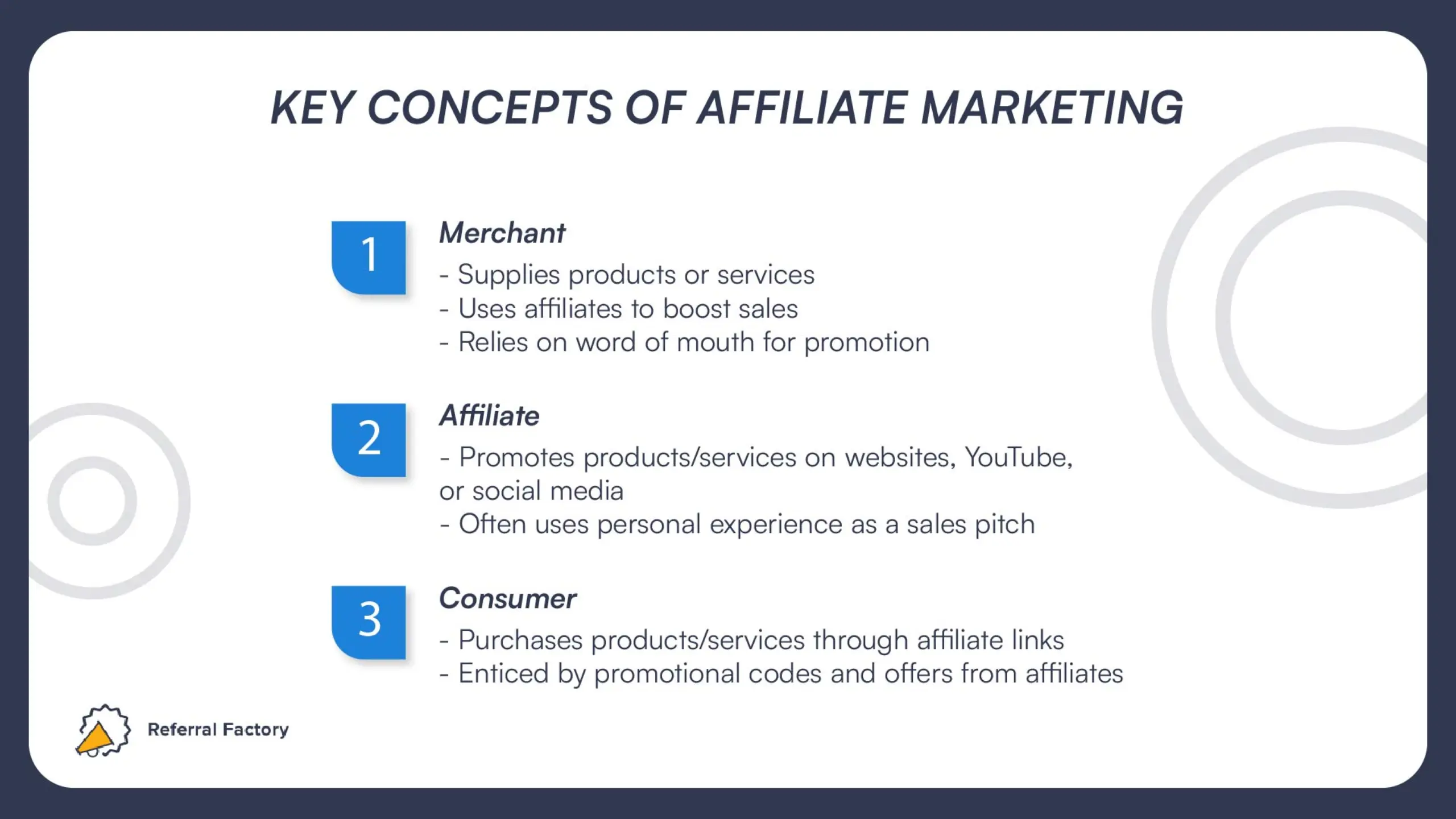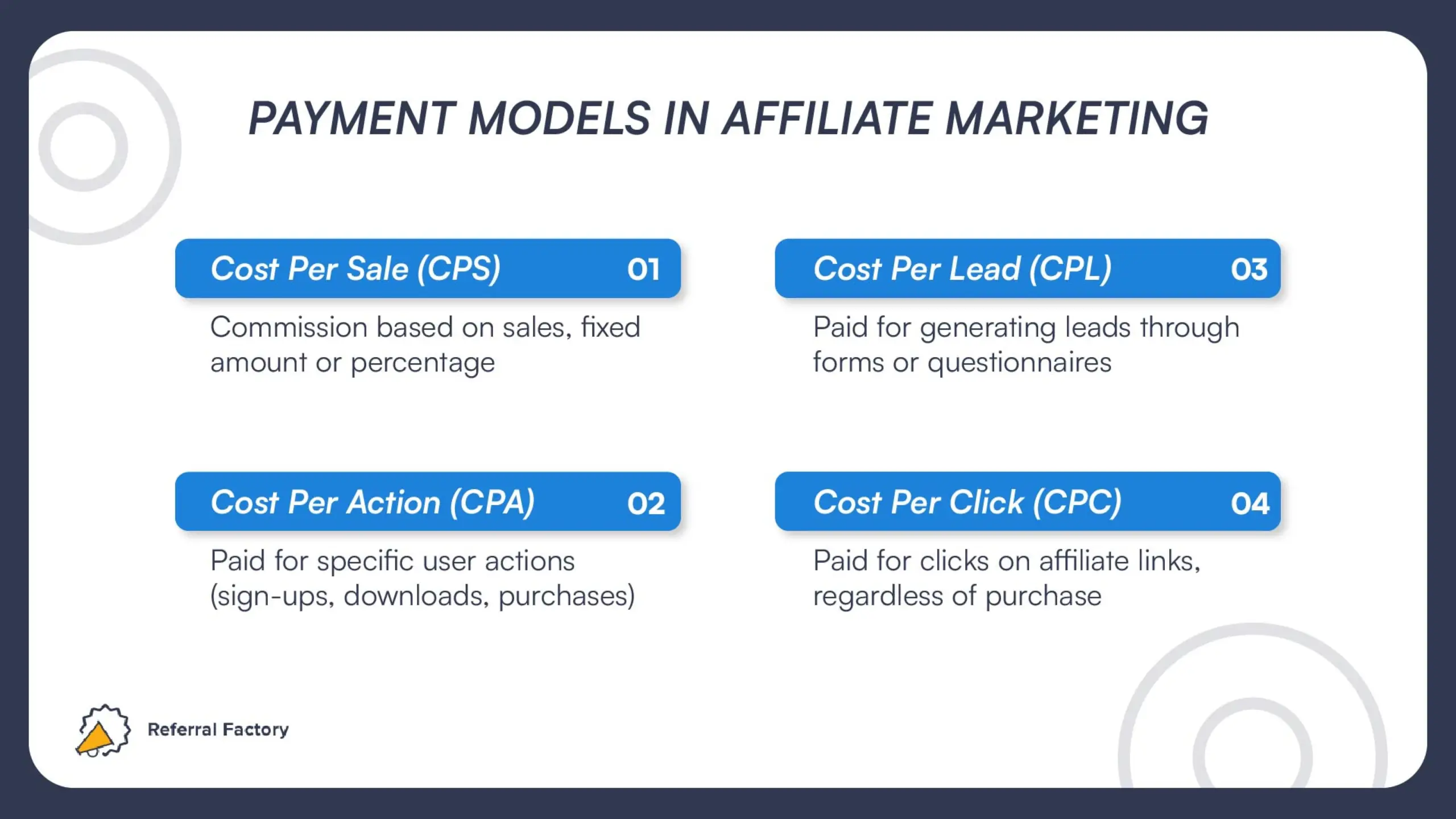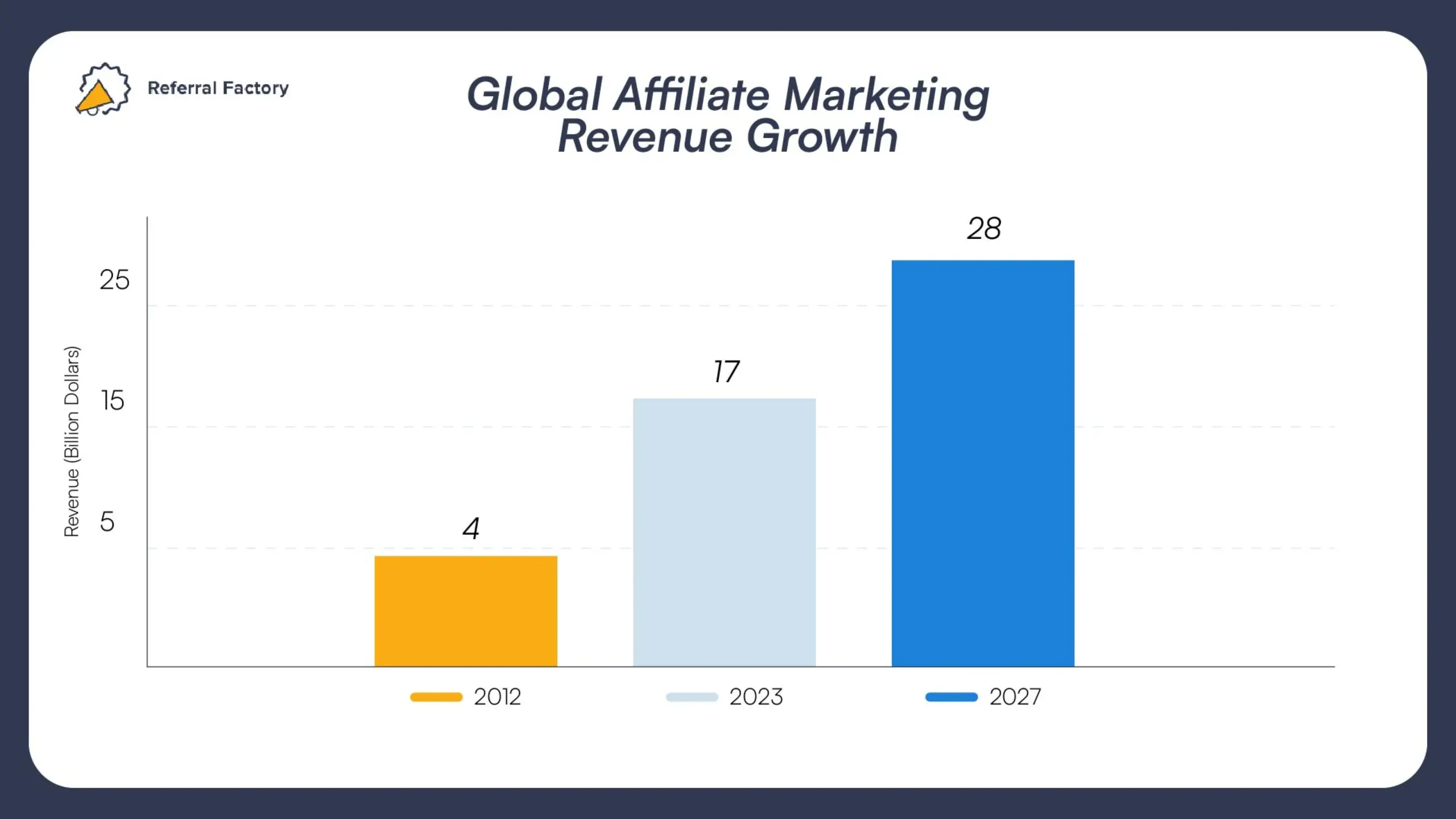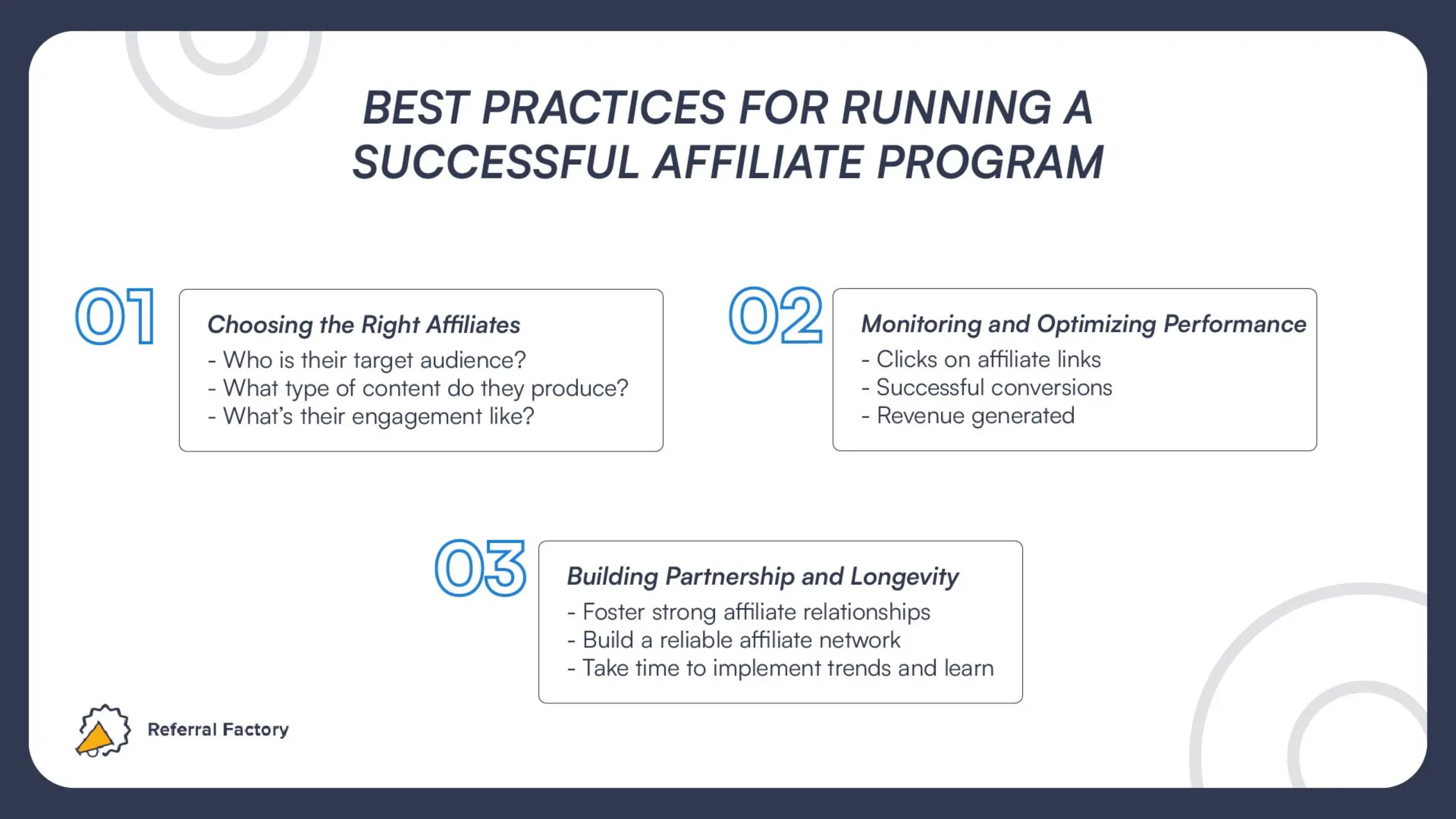Is Affiliate Marketing Legit? The Data Speaks For Itself
When you hear “affiliate marketing,” you might think of Amazon Associates or that YouTuber you watch who’s always telling you to “click this link” and use their promo code. But back in 1989, when affiliate marketing first began, none of these options existed. In fact, the affiliate marketing industry didn’t take shape until the mid-90s.
This was a time of suspicion and distrust towards anything “internet”—a time when people had to rent DVDs from the store, and coupons came printed in your newspaper. So, it’s safe to say that people were skeptical about making money online, let alone consistently.
Before it became the sophisticated billion-dollar industry we know today, affiliate marketing had a negative connotation in its early days due to its high-risk, high-reward format. The return on investments was not guaranteed, and there was enough room for fraudulent activity. Plus, it was all too similar to gambling.
Sure—high-quality products, genuine skills, and effective marketing strategies were necessary to succeed, but so was luck. Normally, a high investment would mean a greater reward. Still, when you factor in customer retention, unstable relevance and demand, and potential competition, you may be looking at a greater loss. Considering all this, is affiliate marketing legit?
Table of Contents
What is Affiliate Marketing?
Affiliate marketing programs became what they are today in the mid-1990s. Large corporations like Amazon were the first to jump on the bandwagon and popularize the advertising model.
In July 1996, Amazon Associates was created. This allowed Amazon users to earn commissions by referring potential clientele from their own websites to Amazon. The referral was tracked through the users’ cookies, and the affiliate was compensated for each sale they supplied. Commission percentages varied from less than 1% to 20% depending on the product or service being sold, provided lead traffic, and geographical area.
[convertkit form=7182297]
From Shady Beginnings to Mainstream Success
As the industry was still finding its footing, quite a few controversies shrouded the online marketing culture, and for good reason. It was becoming way too easy to create fake spam emails and online reviews to lure in gullible consumers desperate for external validation about their shopping habits.
And the scamming would go both ways. Just as a fraudulent affiliate marketer would use click fraud to generate unnaturally large amounts of clicks on their websites, fraudulent businesses would sell illegally obtained products—or, in some cases, quite literally nothing—while promising high commissions to affiliates in exchange for “an entrance fee” to the “VIP list.” After receiving their share, the “company” would simply cut contact with said affiliate, who would have no real way of reaching them, given that their Customer Support had never existed in the first place.
The lack of regulation and guidelines discouraged many people from trusting online offers and ads, leading to public disdain for affiliate marketing. This resulted in the industry putting a stronger emphasis on ethical policies and transparent advertising. Over time, with the help of improving technology, steps were taken toward rebuilding consumer trust while maintaining a level of honesty sufficient enough to provide reassurance.
Regulatory Changes and Industry Standards
The advancement of technology and the newly prioritized ethical standards paved the way for affiliate marketing to rebrand itself. With the rise of performance marketing agencies, it became harder for scammers to conduct schemes like click fraud or pay-to-join affiliate programs without getting caught.
Industry associations and government agencies, such as the Federal Trade Commission (FTC), began to forge a more transparent relationship between consumer and affiliate. Regulations were established, and affiliates were required to disclose information about their relationship with the company they were collaborating with and the actual product they were pushing. Involved affiliate marketing became very popular—especially with the rise of social media influencers.
How Affiliate Marketing Works Today
Modern affiliate marketing uses advanced tracking technology (cookies and lead generation forms) to stay on top of affiliate activity and monitor its performance. Recording this data and performance analytics helps to understand what works and what doesn’t—and, more importantly, what to focus on when putting together your next marketing campaign. Many merchants even use affiliate marketing tools or referral software to track performance, supervise transactions, and oversee other administrative tasks in an organized way.
Key Concepts of Affiliate Marketing
Affiliate marketing consists of three key participants: the merchant, the affiliate, and the consumer.

Merchants are the companies or individuals who supply the products or services in question. They are the ones looking for people to sell what they’re offering. This is not their exclusive sales tactic, but a large portion of their revenue comes from setting up these affiliate programs—relying on the ancient art of word of mouth.
Affiliates are the people responsible for doing the selling. They promote the product or service on their website, YouTube channel, or social media, ideally having tried it themselves. In many cases, the affiliate’s experience using the product they are now advertising is the sales pitch itself.
Consumers are the users who visit these websites or follow the affiliates online and make purchases through the links provided. Affiliates often compel consumers to buy products or services from them instead of the company by providing promotional codes to get a sale.
Payment Models: CPS, CPA, CPL, & More
There are many ways affiliates can get paid by merchants. Let’s go over the most common ones.

Cost Per Sale (CPS)
CPS is when affiliates earn a commission based on the number of sales they bring in. They can either receive a fixed amount every time someone they refer makes a purchase or a percentage of the total sale amount.
Cost Per Action (CPA)
CPA is when affiliates get paid for any number of specific “actions” performed by the referred user. These can be signing up for a course, website, newsletter, or email listing. It can also include downloading a file, making the actual purchase, or doing anything else that qualifies as a complete “action.”
Cost Per Lead (CPL)
CPL is when affiliates make money by bringing in interested parties, or leads. In this case, the user would have expressed some form of interest in the product or service through the affiliate—whether that means filling in contact information or perhaps answering a short questionnaire before being directed to a landing page.
Cost Per Click (CPC)
CPC is when affiliates are paid for the number of clicks they’ve generated through their links. This commission structure does not require anything to actually happen. As long as the customer has clicked on the affiliate link, even by accident, this is attributed to the affiliate, and they get compensated for it.
These are the four main commission structures in a successful affiliate marketing business. Each one involves different strategies to reach a certain goal. It is the affiliate’s and the merchant’s job to choose which structure fits their objective most.
The Legitimacy of Affiliate Marketing
Affiliate marketing has gained legitimacy over the past two decades. Today, it’s a well-established form of marketing, and one could argue that a business cannot reach its full potential without it. Let’s see if that’s true.
The Numbers Don’t Lie: Data and Market Growth
The general demographic for affiliate marketing consists of people in their mid-20s to mid-40s. Most of these people are from Western countries like the USA and Canada, and a good 77% of them are solopreneurs (yes, that’s a word for people who run their business alone). This demographic is the most prone to persuasion, and as it turns out, they know how to cater to themselves because most affiliates are also in the same age group.
More than 80% of affiliate marketers claim to make around $20,000 a year. This number has grown consistently every year since the founder of PC Flowers and Gifts, Mr. William J. Tobin, first took his flowers to the internet in 1989.

Globally, affiliate marketing has generated $17 billion worldwide—with the US in the lead, boasting just under $10 billion. To put that into perspective, the industry was at a modest $4 billion in 2012. This means that by 2027, we can expect to see growth of up to $28 billion.
Real Success Stories
Some obvious success stories of businesses flourishing with the help of affiliate marketing include Amazon, the motherload, launching Amazon Associates in 1996; Shopify, with its third-party tracking platform Impact; and eBay, of course, having developed its perpetual popularity before some of you reading this were even born.
However, it’s not just multi-billion soulless corporations that get to reap the benefits of affiliate marketing. Entrepreneurs like Missy Ward, Pat Flynn, and Jeremy Schoemaker have carved their way into the industry through hard work and determination. They all started from little to nothing, even struggling with unemployment. Yet today, their annual incomes surpass the $100-thousand mark.
Benefits of Affiliate Marketing for Businesses
Affiliate marketing offers various benefits for businesses. To begin with, companies can reach audiences they never would on their own. They also enhance their credibility by collaborating with a legitimate affiliate marketer who is genuinely interested in their products and services and willing to promote them. Most importantly, this form of marketing allows businesses to organically boost their return on investment (ROI).
Is Affiliate Marketing Worth It?
To answer this question correctly, it helps to weigh out the pros and cons of affiliate marketing for your business.
Pros
The foundation of an affiliate marketing program is performance-based payments. This means that you, as a business, will only be paying for this marketing strategy if it makes you money, if you see clear results, or at the very least, if it draws traffic to your website. You’ll also be reaching already-existing, established audiences, who you would otherwise have no access to.
With the help of reputable affiliate programs like Rakuten Advertising or Hubspot, you’ll be able to monitor all of your data and learn from it. This way, you can make analysis-based decisions to actively improve as you grow. Also, you can target specific affiliates who know about the subject matter of your product or service. As a result, you’ll build trust among the consumers who already admire these affiliates.
For a more specialized approach to managing your affiliate and referral programs, consider using Referral Factory. The platform is designed to help you create and optimize referral and affiliate marketing campaigns, making it easier to build trust and drive growth.
Cons
Now, if you end up choosing an affiliate who is more of a loose cannon, you may find yourself defending your reputation against claims you didn’t even know were being made. Make sure you understand who you can associate yourself with.
Affiliates are also predisposed to produce inconsistent results, so if they’re not performing well during a particular month, neither are you. There’s also the whole may-or-may-not-be-at-risk-of-fraud part, which includes click fraud, fake leads, and ad stacking.
Ultimately, yes—affiliate marketing is worth it. If you have the resources to execute a strong and legitimate affiliate program, you should. Today, with all the tools and software at our disposal, the pros tend to outweigh the cons.
Evaluating ROI and Long-Term Benefits
To analyze the Return on Investment (ROI) and long-term benefits of legitimate affiliate programs, we have to take a look at the numbers. First of all, how is ROI calculated?

ROI = (Net Return / Cost of Investment) x 100
Your net return is the money you make from your affiliate programs minus the collective cost of affiliate commissions.
The cost of investment is the money you spend setting up those affiliate programs.
Ideally, your ROI should be at least 100%, meaning you made zero dollars, but you also lost zero dollars. Take the win.
If you maintain a decent ROI, you’ll start to notice the long-term benefits of reputable affiliate networks. Your business will slowly expand, advancing to potentially international crowds. Over time, you’ll gain brand awareness and visibility, and after a few successful collaborations, some affiliates may even become permanent partners, giving you the sense of stability that this industry sometimes lacks.
Comparing Affiliate Marketing to Other Strategies
Compared to most types of marketing, affiliate marketing is the most cost-effective and scalable. Content marketing, for example, is information-based. It focuses on providing the customer with all the necessary details for buying something. Social media marketing relies too much on engagement. Influencer marketing is very subjective, and this bias can blind consumers. As for search engine marketing, it isn’t very effective for small businesses or solopreneurs. And then there’s email marketing, which requires too much commitment from the customer.
Affiliate marketing, on the other hand, offers long-term value, manageable scalability, and built-in target audiences.
Debunking Common Misconceptions
Given all its advantages, affiliate marketing is often misunderstood. People tend to classify it as a get-rich-quick scheme. While some never gave it a chance, others assumed it would be an overnight success and abandoned the idea in disappointment. There’s also the school of thought that affiliate marketing is only for large corporations and it’s too complicated to set up, or that the affiliates have all the control and the ROI is not worth these complications.
None of these are based on the facts we see today.
Is Affiliate Marketing a Scam?
The only way affiliate marketing can be a scam is if you deal with the wrong people, just like in any other industry. You can get scammed at a farmer’s market or even at a mobile repair shop. There is a risk of fraud in nearly all businesses, but when you do your research and double-check the credibility of all parties involved, you can make good money with affiliate marketing. Many people who have “been-there-done-that” have taken to Reddit to share their expertise, experiences, and advice; you can find valuable insights there.
Ethical and Legal Considerations
When trying to succeed in affiliate marketing, make sure to follow the established rules and regulations to guarantee legitimacy. Your consumers should feel that your priority is to protect them. You can do this by providing accurate and detailed information about what you’re trying to sell them—and disclosing the true nature of your relationship with your affiliates.
Customers don’t like to be left out of the loop, so the more transparent you can be in legal matters, the more they will appreciate it and choose to come back next time.
It’s important to set a precedent by following the industry standards and respecting these guidelines all the way to the finish line. These ethical practices will not only make you look good but also help you avoid fraudulent activity. You’ll have a reliable and trustworthy reputation as you expand your affiliate programs.
How to Avoid Affiliate Marketing Scams and Fraud
Now that we’ve discussed how to be ethical ourselves, let’s talk about how we can avoid affiliate marketing scams. First things first, make sure you research the company you want to sign up with or the affiliates you want to hire. Luckily, background checks have never been easier to conduct than they are today, so take advantage of that.
If you’re worried that some of your affiliates are scammers, consider monitoring their activities.
- Are there any unusual patterns in their performance?
- Are consumers from this affiliate asking to return products too often?
- Are there any discrepancies in traffic or conversion rates?
Look for fraud detection tools you can use to find these patterns and discrepancies so you don’t have to do it manually.
Spotting and Preventing Cookie Stuffing
There are many ways for affiliates to scam you, one of which is cookie stuffing.
Cookie stuffing is when fraudulent affiliates place tracking cookies in the customer’s browser without their knowledge or consent. They often insert these cookies via iframes or auto-redirects. When the user makes an unrelated purchase on their device, this sale gets credited to the affiliate.
It may be difficult to avoid this as a consumer, but one simple solution is to clear all cookies off your browser. You can also install anti-fraud software onto your browser as an extension. As a company, a great way to make sure cookie stuffing doesn’t affect you or your customers is to use cookie-free affiliate tracking, like that provided by Referral Factory.
Protecting Against Spoof Traffic
Another affiliate marketing scam is spoof traffic. This is when scammers contact you via email or text messages claiming to be from familiar institutions, like your bank, social media platforms, or even your internet provider. There is always a sense of urgency in these messages, and once you open them and click on their links, the damage is done.
To avoid such cheap pay-per-click schemes, make sure to stay alert and gather as much information as possible before clicking on anything—especially if you are being asked to submit personal information.
Any real institution will have a phone number where you can reach them. Call them and double-check everything in the message. If you see a blank attachment or one you don’t recognize, don’t open or download it under any circumstances. Generally, it’s also a good idea to install antivirus security on your device. These software programs will recognize affiliate marketing fraud messages before they reach you.
Additional Fraud Prevention Strategies
There are about a million ways to get scammed online. The good news is that there are just as many ways to prevent these scams. In affiliate marketing, it’s important to look through the terms and conditions you are signing up for very tediously. If you are not the one implementing these terms and conditions, make sure you go through each term and each condition one by one. This way, you can avoid being tricked by overly complicated wording or unclear guidelines.
Best Practices for Running a Successful Affiliate Program
Starting an affiliate program can be one of the best things you can ever do for yourself in the long run. But you have to do it right.

Choosing the Right Affiliate Marketer
Before you start affiliate marketing, define your ideal affiliate. Who is their target audience? What type of content do they produce? What’s their engagement like?
Research them inside out and read their comment sections or reviews to understand their relationship with users. When pitching the program, you’ll want to set clear boundaries and guidelines from day one. Remember to establish open and transparent communication and encourage feedback. If your affiliate is a beginner and needs certain resources or materials, help them out.
Monitoring and Optimizing Performance
Once you find your affiliates, stay in constant communication. Always check in with them and be open about the fact that you are monitoring their performance. Performance monitoring is key to understanding whether this partnership is productive for either party—and, more importantly, how to make sure it remains productive over time.
You’ll need to keep track of the number of clicks on affiliate links, the number of successful conversions, the total revenue generated, and other factors that contribute to your program’s success.
Building Partnership and Longevity
Your affiliate program is as good as your affiliates. Put in the effort to foster strong relationships with them, and don’t hesitate to give credit where it’s due. These human connections will lay the groundwork for the success and longevity of your program. Next thing you know, you’ll have an organic network of affiliates.
Setting up this strong foundation will also allow you to take your time implementing industry trends, experimenting with different tools and strategies, and learning in the process. It’s crucial that you give yourself this opportunity. If you can’t afford to take your time in planning original ways to execute these trends, you’ll fall short and become the worst possible thing you can be in this industry: irrelevant.
Future Trends in the Affiliate Marketing Industry
The future of affiliate marketing is shaped by countless technological advancements in and out of the industry. Embracing these trends will give you that competitive edge you need in the market.
Technological Advancements and Innovations
Influencer marketing is huge now. Everyone and their mother is an influencer promoting some new aloe vera product. With that in mind, look out for AI influencers. That’s right—artificial Intelligence has gotten so intelligent that you can watch an entire video of a humanoid trying to sell you vegan deodorant without realizing that this is not a real person. It’s only going to get more realistic and confusing from here.
You also have voice commerce, which allows users to interact with affiliate offers through voice commands. This means that companies may have to adjust their SEO to accommodate vocal feedback and language processing.
Expert Predictions and Industry Insights
As quickly as affiliate marketing evolves, there’s still room for predictions. Experts are anticipating consistent growth with the expansion of social commerce and a large focus on AI machine learning. Considering all these new changes, there’s also potential for stricter regulations to guarantee more privacy and safety for the consumer.
So, Are Affiliate Programs Legit?
Is affiliate marketing legit? Simply put, yes. If you know what you’re doing and who you’re doing it with, by all means, dabble in the ever-expanding world of affiliate marketing. Just make sure you do your research, run those background checks, and look for real reviews containing actual human feedback before tying the knot with any company or individual.
Frequently Asked Questions At A Glance
Is affiliate marketing legit?
Yes, an affiliate marketing business is a legitimate way to earn income. Many people and businesses successfully use it as a primary or supplementary revenue source. To succeed, it’s important to be smart and careful in how you run your affiliate marketing efforts. This means picking reputable programs, promoting products or services you believe in, and sticking to ethical marketing practices. With the right approach, affiliate marketing can be a reliable and profitable way to make money.
How does affiliate marketing work?
Affiliate marketing is a marketing strategy based on performance. The basic structure consists of the merchant, the affiliate, and the consumer. The merchant supplies the product or service while the affiliate promotes said product or service on their website or personal page. The consumer then buys the product or service through the affiliate, usually with a sale or a promotional code. In turn, the merchant pays the affiliate their commission for promoting their brand.
Can businesses benefit from affiliate marketing?
Yes, businesses can extend their target audience through their affiliates, as well as boost their sales. Affiliates can also help provide credibility to a business if they’ve established themselves in the relevant industry.
What are common affiliate marketing scams?
Here are some common examples of affiliate fraud:
- Cookie tracking: is where the fraudulent affiliate places tracking cookies on the user’s browser without their knowledge or consent, collecting all earnings from sales made on that device.
- Click fraud: involves using bots to repeatedly click on affiliate links with no intention of actually proceeding to the transaction
- Fake reviews and testimonials: misleads customers to think the product or service being advertised is much higher quality than it really is, resulting in consumer skepticism, distrust towards the brand, and even legal issues.
What are the future trends in affiliate marketing?
In the future, we can expect to see more AI-driven tools on websites—think chat boxes and voice recognition software. This will allow affiliates to access more resources they might need to diversify their strategies and use the legitimate affiliate marketing program to its full potential.




